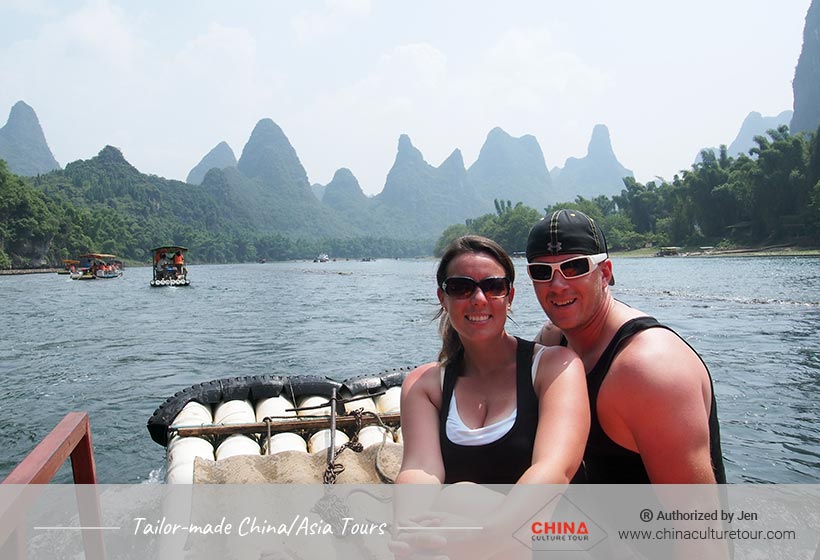20 Recommended Pieces Of Advice To The Best Food Destinations in China
20 Recommended Pieces Of Advice To The Best Food Destinations in China
Blog Article
Top 10 Tips For Bargaining Etiquette While Shopping In China
1. Offer between 50-70% below the quoted price Then, begin negotiating. To show that you're serious, act respectful and firm.
Pro: Allows you to establish your position with the seller without offending them.
Cons A low start can make sellers unhappy with items that have smaller margins.
2. Know the market price
Find out the cost average for the item you want to purchase.
Pro: You will not be scammed and you'll feel confident in the negotiations.
Con: Time-consuming to research, especially for handmade or unique items.
3. Be Genuine and Intention
Tip. Sellers are willing to bargain if they feel that you're serious about purchasing.
Pro: Enhances the likelihood of a successful deal by building rapport.
Con: Your overenthusiasm could be interpreted as a willingness or desire to pay for more. This will weaken your position.
4. The most effective way to walk Away is strategically
Moving away slowly in the event that you are unable to make the price drop is a good tip. Sellers may call back to offer a lower price.
Pro: It's an effective tactic to get the most competitive price.
Cons: The seller might not be willing to cut prices for certain items such as those in high demand.
5. Learn Basic Mandarin Phrases
Tip: Phrases like "Tai gui le!" (Too expensive!) It is also possible to say "Pianyi ba yidian" (Can you lower the price?) show your effort.
Pro It makes the negotiations personal and generally softens the sellers' attitude.
Cons: Limited words may not be beneficial in complicated negotiations.
6. Be patient and remain calm
Negotiations can take a while. Keep your cool to avoid appearing desperate.
Pro Sellers reward calm and persistent buyers with higher-priced deals.
Cons: Takes a lot of time and energy particularly in busy markets.
7. Bring Cash
You may find that sellers are willing to lower the cost in cash payment instead of using digital methods.
Pro: Cash-on-delivery deals especially with smaller sellers, can result in discounts.
Con: Carrying cash may be risky in busy markets because of pickpockets.
8. Discounts for Groups
You can ask for a discount when you are buying several products.
Pro: Increases the power to bargain and makes sure that you are getting a fair price.
Con: It requires you to purchase more items, which may not be a good fit for your requirements.
9. Don't be afraid to Say No
Tips Note: If the seller doesn't lower the price, respectfully turn down the offer and walk away.
Pro: It can help you avoid buyers' remorse, and ensures you are in your financial limits.
Cons: You may not get the items you really would have.
10. Know when not to bargain
The department stores or boutiques with high-end prices is not the best place to bargain.
Pro: Maintains respect for the culture and helps avoid embarrassment.
Cons: You might not be able negotiate with certain people.
Pros and Cons of Bargaining in China
Negotiating costs can cut the price by up to 50%.
Cultural Experience: Engaging in bargaining gives an insight into the local culture and customs.
Personal Interactions: This builds a an intimate relationship with the local sellers.
The Cons of Bargaining In China
Time-consuming: The process of bargaining can take a long time, particularly for shoppers who aren't experienced.
Communication issues can occur in the event that you don't speak Mandarin.
Bargaining is stressful for certain individuals.
Learning these techniques will enable you to negotiate with confidence on Chinese markets. Take a look at the most popular explore this cultural treasure for website recommendations including blue dragon temple, the origin and history of the mysterious chinese dragon, entertainment in hong kong, basha miao village, snow beer the best selling beer in the world, chinese vegetarian food a vegetarians guide in china, basha miao village, eating in fuzhou, chinese festival cuisine, the song of everlasting sorrow the famous long narrative poem and more.
Top 10 Tips For Seasonal Trips To The Temples Of Fame In China
1. Go during off-seasons, usually from November to January. It is when there are fewer visitors and the weather is cooler.
Pro: A less crowded experience that is more contemplative and peaceful.
Cons: It could be more cold and uncomfortable to go to temples outdoors.
2. Prepare for Extreme Weather Conditions
Tip: Temperatures are susceptible to extreme variations in the different seasons. Winters can be extremely cold, while summers be hot. Be sure to check the weather forecast and take the appropriate precautions.
Pro: You'll be ready for any type of weather and comfortable during your stay.
Cons: It's difficult to prepare for extreme weather conditions, especially when you're traveling in a small amount.
3. Visits during the spring and summer for lively Flora
Tips : You can visit temples during the first days of spring and during summer. It is during this time that you will see gorgeous gardens, beautiful landscapes, and flowers all around.
Pro: Gorgeous landscapes add to the overall experience of touring the temple grounds.
Con: Summers can be hot and busy at holidays, particularly the national ones.
4. Think about Special Events and Festivals
Make sure to plan your trip around events such as the Mid-Autumn Festival or Chinese New Year. These seasons are full of ceremonies, celebrations and a chance to experience the temple's vibrant cultural life.
Pros: There are many temples which offer traditional and exciting events. This is a fantastic method to learn about a different tradition.
Con: Temples could be extremely crowded during the festival seasons, and the cost of accommodation can increase.
5. Beware of Peak Holiday Seasons
Avoid visiting temples at high tourist seasons (e.g. Chinese Year of the Pig, Golden Week October) because they could be crowded.
Pro: More tranquil visits, without the crowds giving a more spiritual and peaceful experience.
Con: You might be unable to attend some of the festival's special events if you are there during peak hours.
6. Look for Temple Closures in Winter.
Some temples are closed or may have limited opening hours in the winter months. Be sure to check before visiting.
Benefits: Avoids unnecessary trips and lets you plan other activities ahead of time.
Con: You may be disappointed to learn that some temples have reduced hours of operation or are shut down completely due to construction work.
7. Early Morning Visits in the summertime
Be sure to arrive early if you are visiting in summer, to avoid the heat of midday. Many temples are open in the morning, when there are fewer people and there is less heat.
A cooler and quieter experience without the crowds.
Cons: The early wake-up time could not be ideal for everyone.
8. Be prepared for rain during the summer.
Tips: Summer may also bring heavy rains, especially in the southern part of China. Pack an umbrella or rain gear if you are traveling during this time.
It is still possible to appreciate the beauty of the temple even when it rains.
Cons: Rain could make outdoor activities unusable as well as temple grounds to become slippery.
9. Fall is the best time to visit mountain temples
The autumn foliage and the pleasant weather makes it a perfect time to visit temples in the mountains (e.g. Mount Wutai, Mount Emei).
Pros It is that the cool temperatures allow greater comfort when hiking or exploring the outdoors, and you can enjoy breathtaking views.
Con: Mountain temples that are popular can still attract crowds especially on weekends or holidays.
10. Use the Lunar Calendar to Plan Specific Events
Tips: A lot of temples in China adhere to the lunar calendar and certain rituals or occasions are linked to particular dates of the lunar calendar. To be able to attend events such as Buddha's Birthday and the Lantern Festival in China, you must check out the lunar calendar.
Pro: Unique cultural experiences and deeper understanding of local spiritual practices.
Cons: Planning your trip around the lunar schedule may require extra time and you might discover that the lunar calendar does not coincide with your travel dates.
Benefits of the experience of visiting Chinese temples in the time of the season
Less crowds during off-season visits offer a more peaceful and reflective experience.
Festivals are an excellent way to learn about the religious and cultural traditions of your region.
Scenic Beauty: Going to the area in spring or autumn can provide stunning scenery and lively gardens surrounding temples.
Take advantage of the cooler temperatures of the fall and winter months to visit temples.
Pros and Cons of Seasonal Chinese Temple Visits
Unpredictable weather : winter can be cold while summer could be too warm and make it difficult to sleep.
Some temples are closed during extreme weather or during off-season.
Crowded at Festivals : Popular festivals can bring large numbers of people. This makes it difficult for you to fully appreciate the temple’s serene ambience.
Special Events: Certain seasonal events and celebrations may not take place in the event that you arrive after the appropriate timeframe.
If you plan your trip in accordance with the season it can result in an enjoyable and memorable trip. Understanding the seasonal dynamics can help you get the most out of your trip, whether you are looking for peace and quiet or celebrations. Take a look at the top rated find everything you need to know about this site for more tips including four gentlemen in chinese culture, hua diao the most famous shaoxing yellow wine, tours for the disabled, eating in changchun, luoyang peony and wangcheng park, ancient football in china cuju in ancient china, eating in urumqi, four gentlemen in chinese culture, litchi park, south luogu laneone of the oldest neighborhoods in beijing and more.